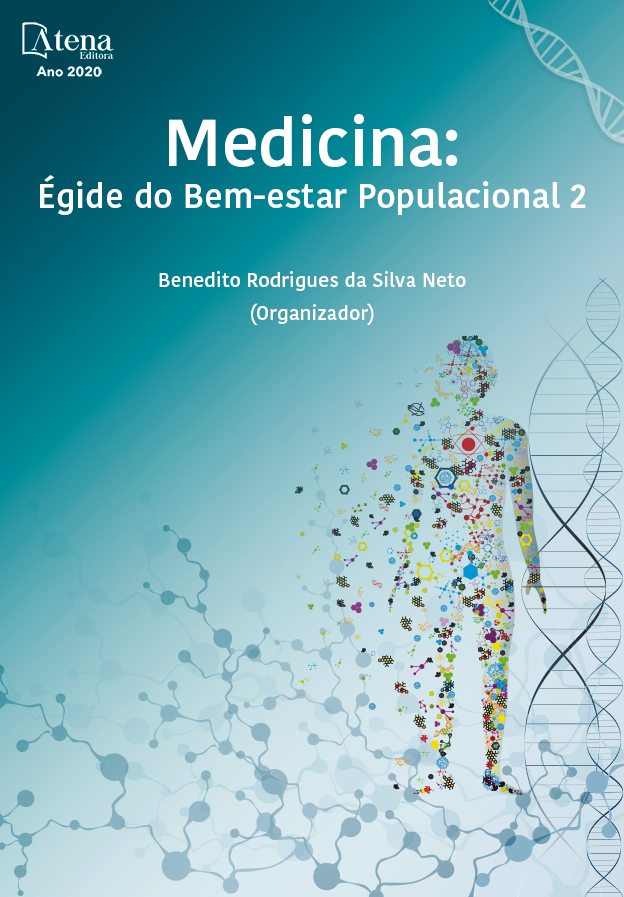
CURCUMINA: UM POTENTE POLIFENOL DA CÚRCUMA LONGA NA PREVENÇÃO DO CÂNCER GÁSTRICO
O câncer gástrico primário (PGC) é o quarto câncer maligno mais comum e a segunda maior causam de morte no mundo. A curcumina é o principal polifenol isolado da cúrcuma, que apresenta atividades anti-inflamatória, antioxidante, antiapoptótica, antitumoral e antimetastática. As evidências existentes indicam que a curcumina pode exercer uma ampla gama de propriedades pleiotrópicas benéficas no trato gastrointestinal, podendo inibir o crescimento celular e induzir apoptose no carcinoma gástrico. Foi realizado uma pesquisa nas bases de dados PubMed, SciELO entre os anos de 2018 a 2019, em língua portuguesa e inglesa, utilizando os descritores cúrcuma longa, câncer gástrico e polifenol. Foram encontrados um total de 90 artigos, usando como critério de exclusão apenas artigos relacionando o composto com o câncer, foram selecionados 06 artigos para o presente estudo. Os resultados demonstraram que a curcumina inibiu o crescimento das células AGS e induziu a apoptose através da ativação da via de sinalização Ras / ERK e da cascata de caspases a jusante, podendo ser um alvo potencial para o tratamento do carcinoma gástrico, além disso os resultados de ensaio de citometria de fluxo indicaram que a curcumina induziu a apoptose das células gástricas induzindo autofagia nas células ativando a via de sinalização do P53 e inibiu a via de sinalização PI3K regulando positivamente o P53 e o P21, que também inibiram a via PI3K através da regulação negativa PI3K, p-Akt e p-mTOR. Portanto, a evidência de que este derivado de cúrcuma inibe a invasão e proliferação de células de câncer gástrico é encorajadora e merece mais estudos experimentais e clínicos com novas formulações para apoiar a inclusão da curcumina em regimes de terapia contra o câncer.
CURCUMINA: UM POTENTE POLIFENOL DA CÚRCUMA LONGA NA PREVENÇÃO DO CÂNCER GÁSTRICO
-
DOI: 10.22533/at.ed.5282005106
-
Palavras-chave: Cúrcuma longa, Câncer gástrico e Polifenol
-
Keywords: Long turmeric, Gastric Cancer, Polyphenol.
-
Abstract:
Primary gastric cancer (PGC) is the fourth most common malignant cancer and the second largest cause of death in the world. Curcumin is the main polyphenol isolated from turmeric, which has anti-inflammatory, antioxidant, anti-apoptotic, antitumor and antimetastatic activities. Evidence indicates that curcumin can exert a wide range of beneficial pleiotropic properties in the gastrointestinal tract, and can inhibit cell growth and induce apoptosis in gastric carcinoma. A search in the PubMed, SciELO databases from 2018 to 2019 in Portuguese and English was performed using the descriptors longuscuma, gastric cancer and polyphenol. A total of 90 articles were found, using as exclusion criteria only articles related to the compound with cancer, 06 articles were selected for the present study. The results showed that curcumin inhibited AGS cell growth and induced apoptosis through activation of the Ras / ERK signaling pathway and the cascade of caspases downstream, and may be a potential target for the treatment of gastric carcinoma, In addition, the results of the flow cytometry test indicated that curcumin induced apoptosis of the gastric cells by inducing autophagia in the cells by activating the P53 signalling pathway and inhibited the PI3K signalling pathway by positively regulating P53 and P21, which also inhibited the PI3K pathway by negative regulation PI3K, p-Akt and p-mTOR. Therefore, the evidence that this turmeric derivative inhibits invasion and proliferation of gastric cancer cells is encouraging and deserves further experimental and clinical studies with new formulations to support the inclusion of curcumin in cancer therapy regimens.
-
Número de páginas: 8
- Aldaisa Pereira Lopes
- Dheyson Sousa Dultra
- Layza Karyne Farias Mendes
- Antônio Thiago de Almeida
- Renata Martins Costa


